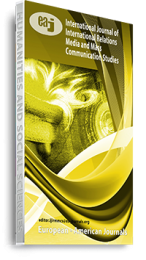Critical Assessment of media coverage of the 2015 Presidential Election in Nigeria would, no doubt, yield a pitiable result of poor performance considering the high level of partisanship of both private and public media with respect to the tone and content of reportage. Even in advanced societies, the media can engage in discourse of political matter in ways that could favour or disfavour a political candidate, but with a clear boundary that abhor breach of professional ethics and blatant portrayal of falsehood. The history of media in Nigeria is intertwined with political developments, as such, most research tended to focus on the significance of the media in democratic transitions; highlighting basically on the position of the media as the ‘Fourth Estate’ whose agenda should be right in itself to guide people towards political decision and participation. Others have emphasized on the role of ownership in determining media coverage of elections in Nigeria. We are not aware of any study that investigates specifically media bias, tone or negativity in Nigeria. This paper attempts to fill this gap by examining dimensions of negativity towards politics during the 2015 Presidential election in Nigeria. By drawing on the previous study that conceptualized frame-related and individual-related negativity, the paper identified different methods through which news outlets frame negativity in the coverage of political issues. Such methods, as this paper shows, are the selection of like-minded sources, making salience of ideologically based opinion articles, re-publication of news items from other news channels that aptly supports specific agenda frame, and having headlines jaded with text and tone that negatively describe political actors. Drawing on the content analyses of six online media websites, the paper measured how news outlets frame stories that are conflict driven, pessimistic-centred, or reflect incapability or portray negativity towards political actors or institution during the coverage of the 2015 Presidential election in Nigeria. The paper demonstrates that the tone and content deployed to report issues of the election were capable of promoting political disengagements and media cynicism and concludes that the coverage of Nigeria’s 2015 Presidential election was overtly negative, conflict driven, reflects predominantly incapability and offer pessimistic view or negative portrayal of political actors.
Keywords: Election Coverage, Framing, Media Bias, Media Tonality, Negativity, Political Actors

